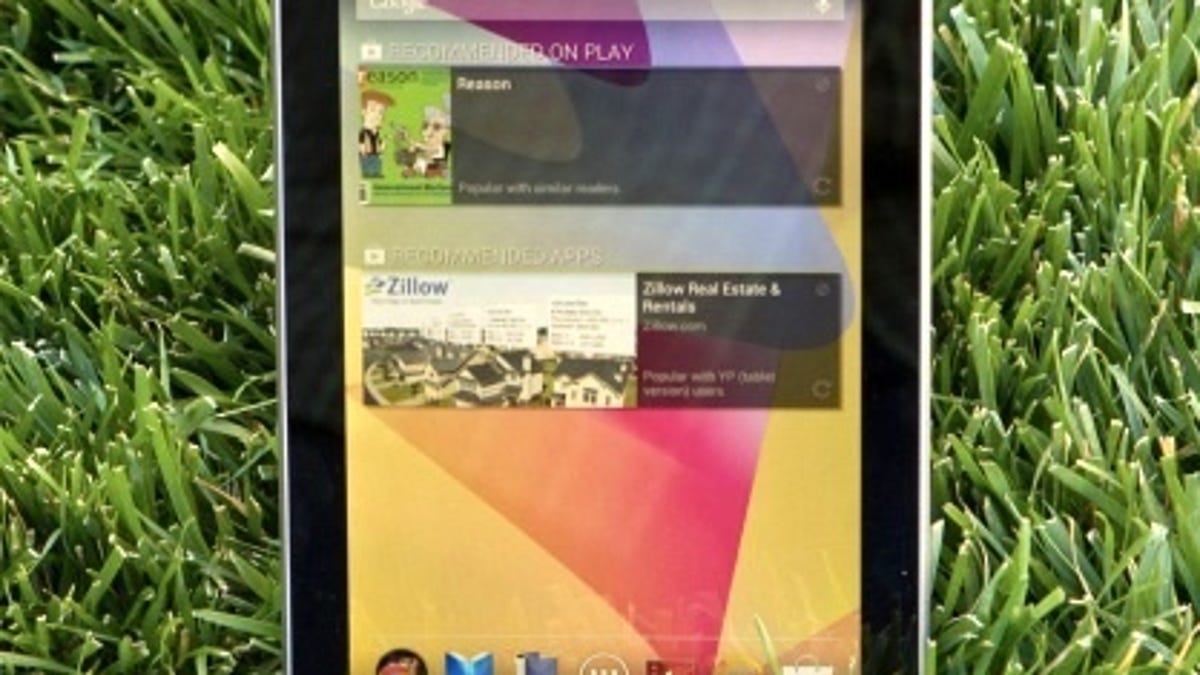Nvidia touts ascendancy in Android, Windows 8 tablets
Nvidia's CEO isn't bashful when chatting about his company's success in the Windows 8 and Android tablet markets.

Nvidia's emergence as a leading player in both the Android and Windows 8 tablet markets was driven home today when the chip supplier's CEO discussed second-quarter results in an earnings conference call.
Revenue rose to $1.04 billion from $1.01 billion in the company's second quarter of last year. Analysts had forecast revenue of $1 billion.
Net income was $119 million, or 19 cents a share, below the $151.6 million, or 25 cents a share, recorded in the same period last year. But that exceeded analyst estimates of 14 cents a share on sales of $1 billion.
And revenue for the quarter ending in October will be $1.15 billion to $1.25 billion, Nvidia said. That beats analyst estimates of $1.09 billion.
"We're the only computer technology company that has made its way from the PC industry to the mobile industry," Nvidia CEO Jen-Hsun Huang said during the company's earning conference call.
That comment could be directed at Intel, which has yet to gain much of a toehold in the phone and tablet markets.
And Nvidia has the clientele to back up that statement. Huang was quick to remind analysts about the presence of the quad-core Tegra 3 chip in the popular Android 4.1 Nexus 7 tablet from Google.
And he also talked about his "surprise" when Microsoft selected Nvidia for the Surface RT Windows 8 tablet due on October 26.
But Microsoft isn't the only tablet maker to select Nvidia. "We have three design wins on Windows RT," Huang said. "Microsoft, Asus...and a third hasn't been announced yet."
Nvidia thinks it's well positioned as consumers buy more PCs and, relatively, fewer PCs. "A lot of people think that the tablet market in just a few more years will be as large as the entire PC mobile market. This (tablets) is going to be a very, very large part of our overall business," he said.
Huang also mentioned that the key to Android tablets' success in the business and corporate markets is Microsoft Office.
"There are a couple of ways to provide that. One is obviously Office [directly on the tablet]. The other is to virtualize it. Which is the way Citrix does it. Citrix and VMWare and RemoteFX make it possible for us to remote the entire PC experience to any device," he said.

